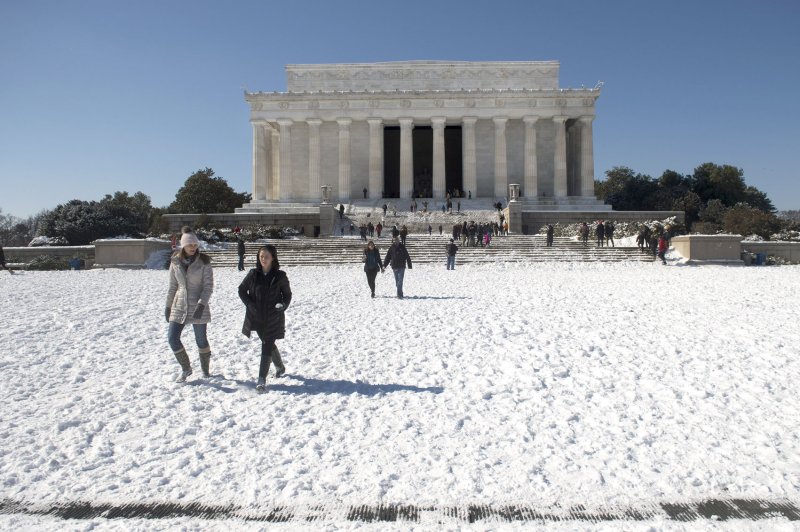1 of 4 | People visit the Lincoln Memorial after an overnight storm hit Washington, D.C., February 17, 2015. A President's Day snow storm dropped 3-6 inches of snow over the metro region. Photo by Kevin Dietsch/UPI |
License Photo
WASHINGTON, Feb. 18 (UPI) -- Temperatures will plummet to about 25 to 30 degrees below normal across the eastern half of the United States as a cold weather system moves toward the East Coast starting on Wednesday.
New record-low temperatures are expected, according to the National Weather Service. About 250,000 homes and business, mostly in Georgia, are still without power in the Southeast after the latest cold surge.
On Tuesday, almost 1,700 departures and arrivals were canceled at U.S. airports, mostly at Charlotte, N.C., and Nashville, Tenn., airports.
An air mass some meteorologists call the "Siberian Express," because it originated in the region of Siberia, will bring the coldest temperatures as it moves south. Below zero overnight temperatures are forecast through parts of Tennessee and Kentucky on Thursday.
For Thursday morning, the low for Nashville, Tenn., is negative three degrees and Frankfort, Ky., may reach a low of negative eight degrees.
"Over the eastern half of the nation, we all know that it has been quite cold over the past week," David Hamrick of the National Weather Service said in a statement. "Get ready for an even more impressive surge of arctic air later this week as another cold front drops south from Canada."
"There are indications that this could be some of the coldest weather since the mid-1990s for parts of the Southeast U.S., Mid-Atlantic, and central Appalachians," he added.
The weather system is expected to move into Washington, D.C., Philadelphia and New York City on Thursday morning. New England may experience a season of record snow.
There have been six winter storms in the past three weeks. More snow, sleet and freezing rain could occur early next week from the southern Plains into the Southeast.















